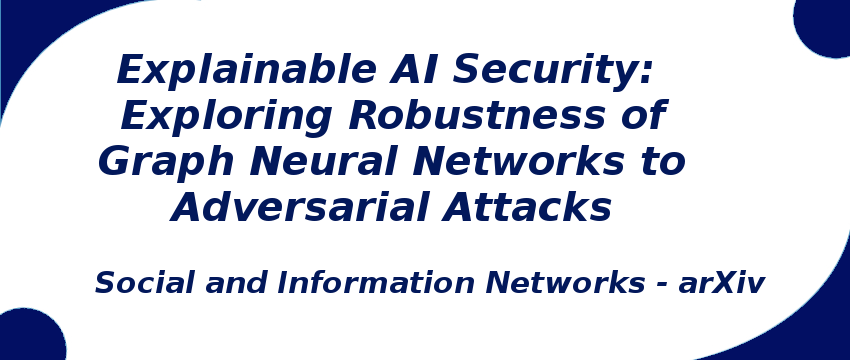Research Area: Machine Learning
Graph neural networks (GNNs) have achieved tremendous success, but recent studies have shown that GNNs are vulnerable to adversarial attacks, which significantly hinders their use in safety-critical scenarios. Therefore, the design of robust GNNs has attracted increasing attention. However, existing research has mainly been conducted via experimental trial and error, and thus far, there remains a lack of a comprehensive understanding of the vulnerability of GNNs. To address this limitation, we systematically investigate the adversarial robustness of GNNs by considering graph data patterns, model-specific factors, and the transferability of adversarial examples. Through extensive experiments, a set of principled guidelines is obtained for improving the adversarial robustness of GNNs, for example: (i) rather than highly regular graphs, the training graph data with diverse structural patterns is crucial for model robustness, which is consistent with the concept of adversarial training; (ii) the large model capacity of GNNs with sufficient training data has a positive effect on model robustness, and only a small percentage of neurons in GNNs are affected by adversarial attacks; (iii) adversarial transfer is not symmetric and the adversarial examples produced by the small-capacity model have stronger adversarial transferability. This work illuminates the vulnerabilities of GNNs and opens many promising avenues for designing robust GNNs.
Keywords:
Author(s) Name: Tao Wu, Canyixing Cui, Xingping Xian, Shaojie Qiao, Chao Wang, Lin Yuan, Shui Yu
Journal name: Social and Information Networks
Conferrence name:
Publisher name: arXiv
DOI: 10.48550/arXiv.2406.13920
Volume Information: Volume 31 , (2024)
Paper Link: https://arxiv.org/abs/2406.13920
